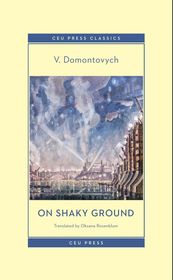
Style and Ideology in Translation
Latin American Writing in English
Series: Routledge Studies in Linguistics; 8;
- Publisher's listprice GBP 155.00
-
74 051 Ft (70 525 Ft + 5% VAT)
The price is estimated because at the time of ordering we do not know what conversion rates will apply to HUF / product currency when the book arrives. In case HUF is weaker, the price increases slightly, in case HUF is stronger, the price goes lower slightly.
- Discount 20% (cc. 14 810 Ft off)
- Discounted price 59 241 Ft (56 420 Ft + 5% VAT)
Subcribe now and take benefit of a favourable price.
Subscribe
74 051 Ft

Availability
Estimated delivery time: In stock at the publisher, but not at Prospero's office. Delivery time approx. 3-5 weeks.
Not in stock at Prospero.
Why don't you give exact delivery time?
Delivery time is estimated on our previous experiences. We give estimations only, because we order from outside Hungary, and the delivery time mainly depends on how quickly the publisher supplies the book. Faster or slower deliveries both happen, but we do our best to supply as quickly as possible.
Product details:
- Edition number 1
- Publisher Routledge
- Date of Publication 28 September 2007
- ISBN 9780415361040
- Binding Hardback
- No. of pages280 pages
- Size 229x152 mm
- Weight 498 g
- Language English
- Illustrations 20 Tables, black & white 0
Categories
Short description:
Adopting an interdisciplinary approach, this book investigates the style, or ‘voice’, of English language translations of twentieth century Latin American writing. The style of the different translators is subjected to a close linguistic investigation within their cultural and ideological framework
MoreLong description:
Adopting an interdisciplinary approach, this book investigates the style, or ‘voice,’ of English language translations of twentieth-century Latin American writing, including fiction, political speeches, and film. Existing models of stylistic analysis, supported at times by computer-assisted analysis, are developed to examine a range of works and writers, selected for their literary, cultural, and ideological importance. The style of the different translators is subjected to a close linguistic investigation within their cultural and ideological framework.
"Munday (Spanish studies and translation, U. of Leeds) explains how and why style differs in translations. He notes that identical translations would probably be the result of a miracle, and yet the process by which they have been constituted would still differ as would their significance. In eight precise and inter-linked essays he explores discursive presence, voice and style in translation, and how these elements apply within the ideological contexts in the translation of South American works. He examines the work of Harriet de OnÃs and other pre-1960s "classical" translators, the work of many translators on the voice of Garcia Márquez, the particular case of Gregory Rabassa, the shifts of the political in translation, and style in audiovisual translation. His closing chapter on translation and identity is particularly good." -- Book News Inc., August 2008
MoreTable of Contents:
Introduction
1 Discursive presence, voice and style in translation
2 Ideological macro-context in the translation of Latin America
3 The classic translator pre-1960: Harriet de Onís
4 One author, many voices: the voice of García Márquez through his many translators
5 One translator, many authors: the "controlled schizophrenia" of Gregory Rabassa
6 Political ideology and translation
7 Style in audiovisual translation
8 Translation and identity
Conclusion
Bibliography
Index
More

Kaplan GED Test Premier 2015 with 2 Practice Tests: Book + Online + Videos + Mobile
10 548 HUF
9 704 HUF









